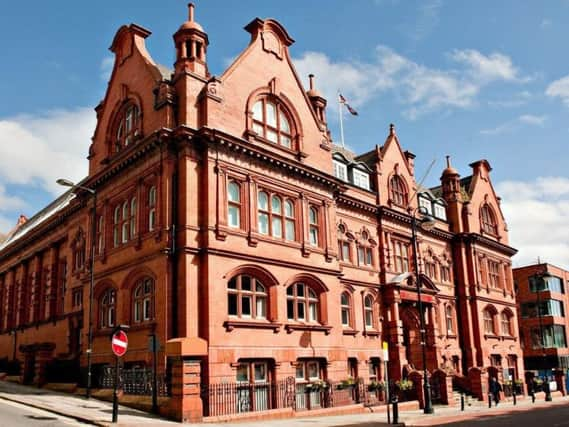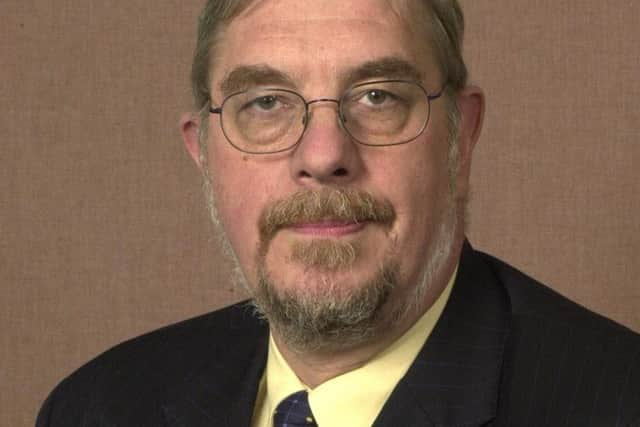Wigan Council tax frozen but bills will still rise by 3%


The town hall will not be asking for any further money to fund its own services but is imposing a three per cent precept from Westminster for adult social care.
The borough’s ruling cabinet will this week have to approve the move, part of a savings package of £27.5m which must be made by 2020-21, before it is put to the full council next month.
Advertisement
Hide AdAdvertisement
Hide AdAdult social care costs in Wigan are currently rising by about £5.5m each year, with the precept expected to bring about £3.3m into the coffers and other savings making up the shortfall.Indeed, Mr McKevitt says the financial situation allows the council to invest around £1.5m annually in the area.


The council’s medium-term financial plan shows budgets will be trimmed by £12m in 2018-19, £10.6m the following financial year and then just £4.9m in 2020-21.
Leader Lord Smith said he believed the borough’s taxpayers should not be hit in the pocket for ministers’ inability to fund services properly but stressed Wigan was in a much better financial position than many other North West town halls.
He said: “This is the fifth year running we’ve got the Wigan element of council tax down to zero, which means we’ve kept that promise we made not to increase it. The Government is imposing this three per cent council tax and we’ve no control over it other than adding it onto bills.”
Advertisement
Hide AdAdvertisement
Hide Ad“The Government recognises that social care in England is not properly funded but it is not providing money itself.


“They’ve said the only way for councils to have more money to deal with the big demographic changes and older population with more complex needs is through the precept.
“Personally I think it should be centrally funded from the Government but it isn’t. Council tax is pretty unfair because the poorer sections of society pay a bigger proportion of their income, whereas income tax is fairer because the better off pay more.
“We felt we owed it to the ordinary person in Wigan struggling because their income is not going up by very much to make sure we are not putting more pressure on them.”
Advertisement
Hide AdAdvertisement
Hide AdThe Government is also allowing councils to impose a second three per cent precept for general services but Lord Smith says reorganisations under The Deal means this is not needed in Wigan.
The local authority is confident Wiganers will face much smaller bills than their neighbours, with many councils around Greater Manchester and the North West planning total hikes of between four and six per cent with increases both local and national.
However, senior leaders are confident this will not involve an axe being taken to frontline services.
Lord Smith said: “We have done a real programme of transforming the way we delivver services and when we ask people they think the council is doing better now than it was in 2010.
Advertisement
Hide AdAdvertisement
Hide Ad“We’re working in a more flexible way. For example, we’ve kept libraries open. It may be with different hours or operated by communities, but people still have the local service they value.
“We’ve supported communities, got more activities and groups involved and targeted problems early on before the become very serious and therefore expensive.”
Lord Smith and Mr McKevitt thanked residents for how well they had coped with the introduction of the controversial three-week bin rota.
They said fears of rats and health issues had largely proved unfounded and recycling rates had already improved, saving the council having to pay landfill taxes.
Advertisement
Hide AdAdvertisement
Hide AdThey also stressed Wigan Council would not be following the example of others and dipping into reserve funds to balance the books, leaving long-term infrastructure projects such as improvements in Leigh town centre free to proceed.
The council says the biggest savings will be made in 2018-19 through re-integrating the housing department back into the town hall and using The Deal to make services more efficient.
In 2019-20 the town hall hopes to save more than £4.6m through a variety of corporate and financial savings including restructuring long term debt as well as £3.3m through bringing health and social care together working with the NHS and other bodies.
The 2020-21 prospect is currently unknown as the Government’s financial settlement is yet to be decided, but Mr McKevitt and Lord Smith are confident the town hall will have a healthy balance sheet by this time.
The cabinet meets on Thursday to approve the medium-term financial plan before it is put to all the councillors on Wednesday March 7.